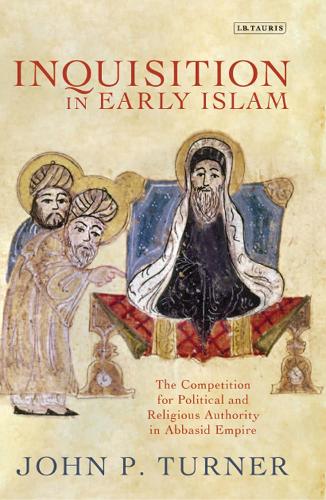
Inquisition in Early Islam: The Competition for Political and Religious Authority in the Abbasid Empire
(Hardback)
Publishing Details
Inquisition in Early Islam: The Competition for Political and Religious Authority in the Abbasid Empire
By (Author) John P. Turner
Bloomsbury Publishing PLC
I.B. Tauris
30th March 2013
United Kingdom
Classifications
General
Non Fiction
Islam
297.0902
Physical Properties
Hardback
248
Width 144mm, Height 220mm, Spine 20mm
440g
Description
In 833 CE, the Abbasid Caliph al-Ma'mun began a period of inquisition (mihna), one which continued until his successor al-Mutawakkil decreed its end, fifteen years later. During this period, the Caliphs in power strove to promote 'correct belief' in the 'createdness' of the Qur'an, thus ordering the interrogation of religious scholars, and disqualifying, punishing or even executing those who answered incorrectly. Here, John P. Turner examines this major episode, viewing it as a pivotal point in the struggle between the temporal authorities and religious law in the Middle East. By examining the definition of 'heresy', Turner presents a vivid account of the heresy trials in this period, as well as incisive analysis concerning the relationship between secular power and religious authority. This book is of particular interest to researchers and scholars of Islamic history, comparative religion and the medieval world.
Reviews
'The series of events and practices which took place in Baghdad during a fifteen-year period and which today are known under the title of the mihna, the "Inquisition", have been hailed by many modern historians as of profound, far-reaching and almost cataclysmic importance for the history of the early Abbasid caliphate. This study marks a signal advance on previous scholarly engagements with the mihna and makes an important contribution to the history of the Umayyads and early Abbasids. Turner encourages us to perceive a narrative of caliphs and ruling elites consolidating their legitimacy and realising their divine mandate to govern by wielding inquiry into personal belief and doxography, thus ensuring the creedal probity of their society in an age when dogma and realpolitik were inflections of power. By the tenth century, orthodoxy had been established. The mihna was, as Turner persuasively argues, one of the many complex steps backwards and forwards which culminated in the articulation of Sunni Islam.' James Mont gomery, S i r Thomas Adams Profess or of Ar abic, University of Cambridge 'John Turner's Inquisition in Early Islam is a very novel and important contribution to the field of Islamic Studies. The relationship between Caliph and ulama is used as focus in studying religious trials by the Umayyads to the Abbasids; brilliantly, Turner does not stop in the third Islamic century (as most writers do) but brings his readers up to the fourth Islamic century to explain how Sunni "orthodoxy" further consolidated its position as the leading current in Islam. In short, the book provides us with a number of very original and new insights. Being well-structured and well-written, this book is bound to generate new vistas of research and debates.' John Nawas, Profess or of Arabic and Islamic Stu dies, Catholic University Leuven, Belgium
Author Bio
John P. Turner is Associate Professor of History at Colby College, Maine. He holds a PhD in Near Eastern Studies from the University of Michigan.
